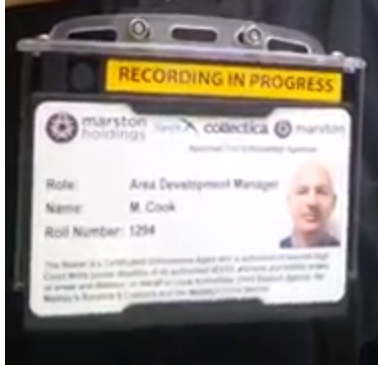Bailiffs And Body-Worn Cameras
You are entitled to obtain a copy of the bailiff's bodyworn camera recordings, even if these recordings provide evidence against the bailiff. Should the bailiff refuse to provide the recordings, you have the right to apply to the court for their disclosure, along with your legal expenses.
Under Civil Procedure Rule 31.16 (CPR 31.16), you have the right to apply to the court to get a copy of the bailiff's bodyworn camera recordings, even if the recordings provide evidence against the bailiff. If the bailiff refuses to disclose these recordings, he may be guilty of Contempt of Court and will significantly undermine the bailiff's defence.
As of 22 July 2019, the government has expressed intent to mandate the use of bodyworn cameras for bailiffs.


You may also request the recordings under GDPR as a "Subject Access Request (SAR)." However, this method is less effective than CPR 31.16 because a breach of section 45 of the Data Protection Act 2018 does not constitute Contempt of Court.
Bailiff companies frequently misunderstand a CPR 31.16 request for bodyworn video camera recordings as a SAR. You can present their response email in your hearing bundle to guide the court in accurately assessing your damages and legal costs. This ensures informed decision-making based on the facts presented.
Template: Produce bailiffs bodycamera recordings under Rule 6 of the Pre-action Conduct and Protocol.


